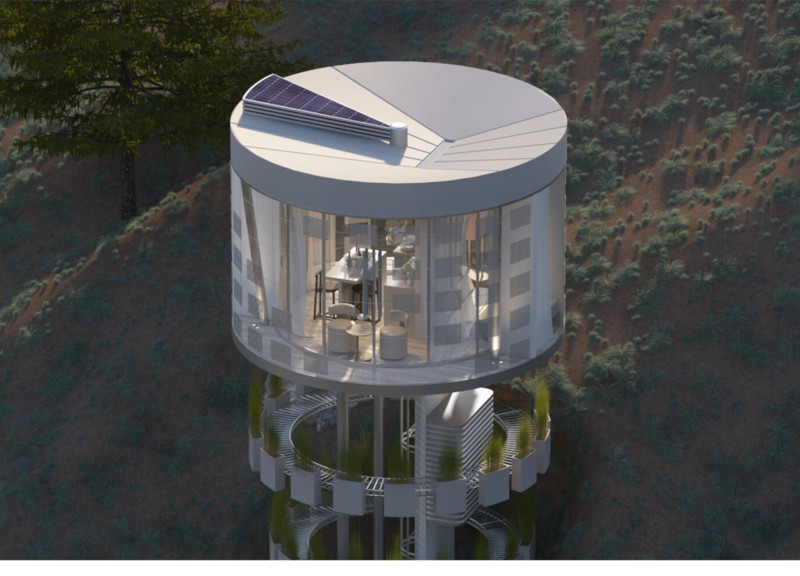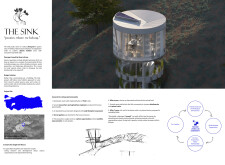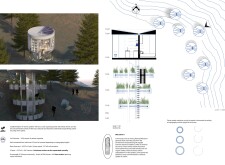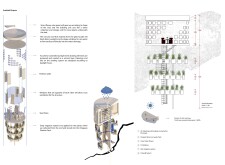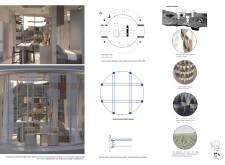5 key facts about this project
### Overview
The Sink, situated in the quarry regions of Afyonkarahisar, Turkey, is a sustainable architectural initiative that seeks to address the environmental challenges posed by quarry operations. The intent is to construct living spaces that facilitate ecological rehabilitation while integrating human habitation with regenerative practices. This project aims to establish a framework for fostering biodiversity and enhancing community engagement through innovative design.
### Spatial Strategy and Sustainable Systems
The design features a circular footprint with an elevated structure, which minimizes the ground footprint and preserves the site's natural landscape. The form is designed to promote inclusivity and interaction with the environment, moving away from traditional rectangular layouts. An innovative roof structure doubles as a solar panel collector and a water drainage system, establishing a relationship between architectural form and ecological function. Each residential cluster incorporates "clover gardens," which serve as carbon sequestration points, enhancing both biodiversity and communal agricultural practices.
### Material Selection
The material palette prioritizes sustainability and recyclability, employing recycled steel for the structural framework, glass facades for natural light and views, and mesh shading elements to optimize passive solar design. A Kinspan Slim Line water tank facilitates rainwater harvesting for irrigation, while an efficient drip irrigation system supports plant growth with minimal waste. These choices reflect a commitment to reducing environmental impact and promoting resource efficiency throughout the project's lifespan.


